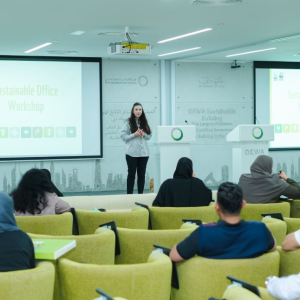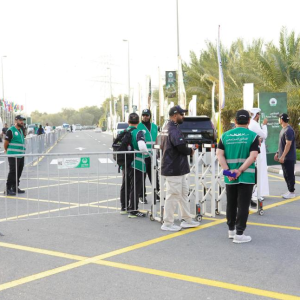The Return of the 30% Alcohol Tax
Dubai has announced it will reinstate its 30% alcohol sales tax from January 1, 2025, ending a two-year period of tax-free sales. This decision is likely to alter the emirate’s landscape for alcohol pricing, affecting both consumers and businesses. Suspended initially as a boon to residents and visitors, its reinstatement raises questions on the future of nightlife, hospitality, and personal spending habits.
Why Was the Alcohol Tax Postponed in 2023?
The decision to postpone the 30% alcohol tax on January 2023 was part of the strategic moves by Dubai Municipality. The decision to reduce operating costs, especially in a bid to attract more tourists, was part of this initiative. Hotels, bars, and restaurants, in the long run, bought alcohol at much cheaper rates. These eventually translated to consumers getting products at a cheaper rate.

Initially planned as a one-year trial, the suspension extended into 2024, though quietly and without public announcement. Retailers such as MMI and African+Eastern sliced prices by 30% so that the alcohol market in Dubai became highly competitive compared with regional counterparts like Abu Dhabi, which continued imposing the tax.
The pause also bolstered Dubai’s image as a global leisure destination, encouraging a more vibrant nightlife and increasing footfall at venues catering to tourists and residents alike.


The Announcement: Tax Reinstatement in 2025
The Dubai Municipality recently confirmed that the 30% alcohol tax will be reinstated on January 1, 2025. This move has prompted retailers, such as African+Eastern, to prepare for this change. African+Eastern has recently started informing businesses to change their pricing and systems ahead of the reintroduction.
This move has generated much debate among businessmen and consumers, as the tax will be directly related to the price of alcoholic drinks sold at retailers, bars, and restaurants within the emirate.
What Does the Reinstated Tax Mean for Consumers?
For consumers, reimplementation of the tax will result in higher prices for alcohol. In turn, retailers may reintroduce the 30% markup, while hospitality establishments like bars, hotels, and restaurants will adjust their pricing to accommodate the increased costs.
This would potentially make a difference in the affordability of eating out or having a drink at popular spots. Regular customers may have to readjust their entertainment budgets, while visitors to Dubai may experience a divergence in pricing compared to their experiences during the tax-free period.
The return of the alcohol tax poses challenges for businesses in Dubai’s hospitality sector, which benefited significantly from the suspension. Reduced alcohol costs during the two-year tax break allowed many establishments to offer competitive pricing, attracting a larger clientele.
With the reinstatement, businesses are likely to experience higher operation costs, which would eventually hike the menu prices. Bars and restaurants may also need to reformulate their promotional strategies as discounts and happy hours may no longer become as profitable with the new pricing structure.

Despite these challenges, Dubai’s thriving tourism industry and robust economy are expected to sustain demand, though businesses will need to navigate this transition carefully to retain their customer base.
How Does Dubai Compare to Abu Dhabi?
Thus, during this free duty period in Dubai, Abu Dhabi imposed 30% tax on alcohol. This led to the contrasting state of affairs between the two emirates, where Dubai became more affordable for nightlife enthusiasts.
The reintroduction of the tax puts Dubai on the same footing as Abu Dhabi when it comes to alcohol prices, but its wide range of attractions, luxury offerings, and reputation as a world leader in tourism and entertainment will still put it at a slight advantage over its sibling city.
Why This Matters
The return of the 30% alcohol tax reflects Dubai’s broader fiscal strategies and its vision for sustainable growth. While the tax-free period succeeded in boosting tourism and local spending, the reinstatement signals a return to revenue generation through established channels.
This move could also indicate a shift in focus toward long-term stability rather than short-term incentives, ensuring that Dubai remains competitive while maintaining fiscal balance.
What Can Consumers Do?
If people will adjust to the change, they must plan ahead. For instance, purchasing alcohol in large quantities before the tax kick in or taking advantage of offers from retailers could somewhat ease the blow to the wallets. Furthermore, consumers would be on the lookout for loyalty programs or discounts being offered by bars and restaurants that could help keep the cost from rising.
The reinstatement could also encourage a shift toward home entertainment, with residents hosting private gatherings as a cost-effective alternative to frequenting bars or hotels.

What’s Next for Dubai’s Nightlife?
The nightlife and hospitality sector in Dubai has been a long-standing reason for its allure. With the tax returning, some challenges are sure to come along. However, the emirate’s resilience and ability to adapt will make sure that its nightlife continues to be celebrated.
Businesses already seek innovative means to continue achieving the satisfactions of their customers-be it through unique experiences or bundled packages that offer better value. The fact that Dubai stands as a global city will remain a magnet for international residents and tourists looking for world-class entertainment, regardless of the alcohol tax hike.
Conclusion: What the Reinstated Tax Means for You
Reintroduction of the 30% alcohol tax in Dubai in 2025 represents a significant change for both consumers and businesses. As it ends the tax-free period that many have enjoyed, it also signals a return to fiscal policies that promote sustainable growth.
Higher prices for enjoying alcohol, whether at home or out on the town, will be the cost to residents. For businesses, it will require readjustments in pricing structures in order to maintain customer bases.
As Dubai evolves, its adaptability and innovation ensure that the city remains at the forefront of entertainment and leisure. Whether you are a resident or a visitor, staying updated and ready will help you navigate this change while still enjoying all that Dubai has to offer. References:
- Dubai Municipality Announcement: www.dm.gov.ae
- African+Eastern Updates: www.africaneastern.com
You can also read about, Embracing Drinking Culture.













